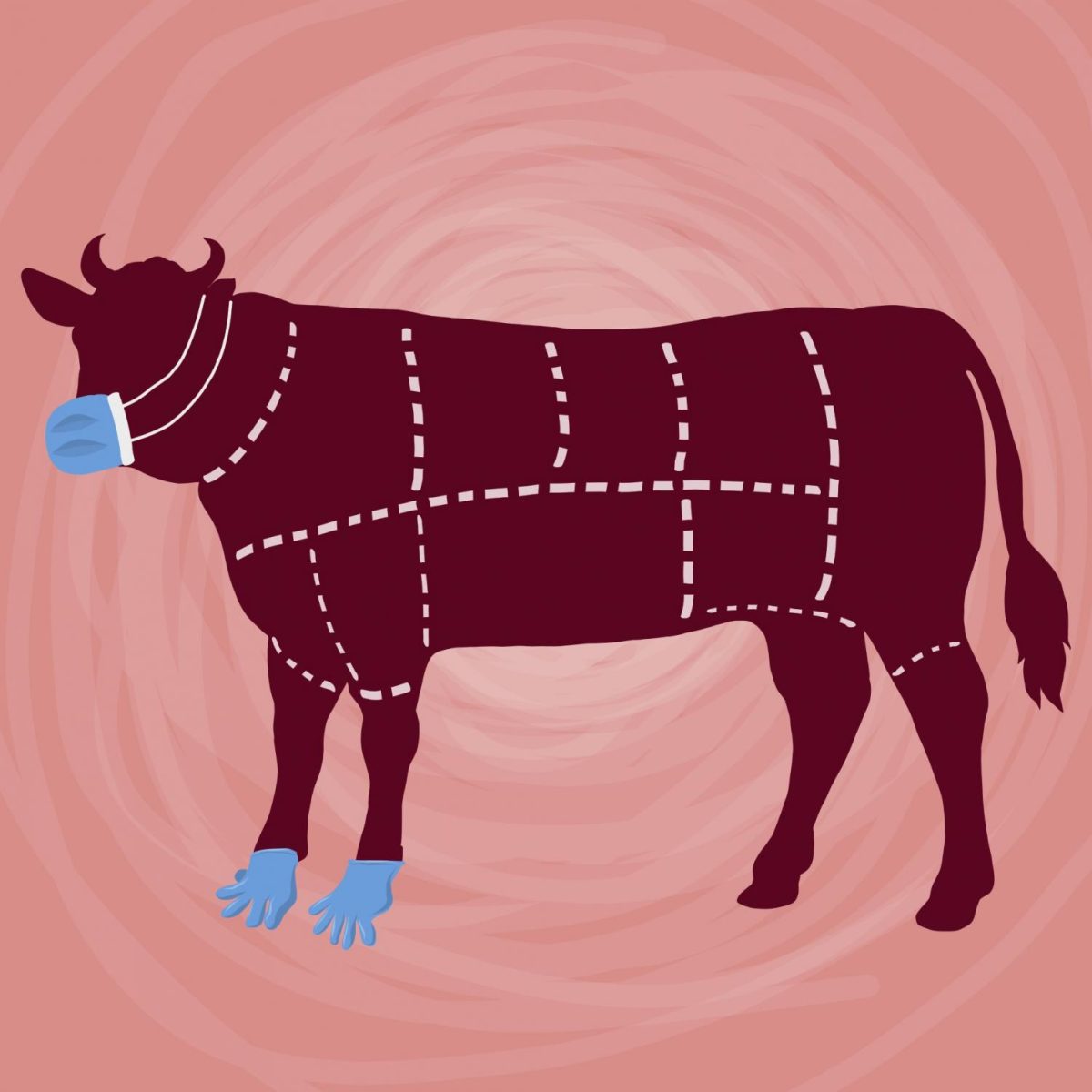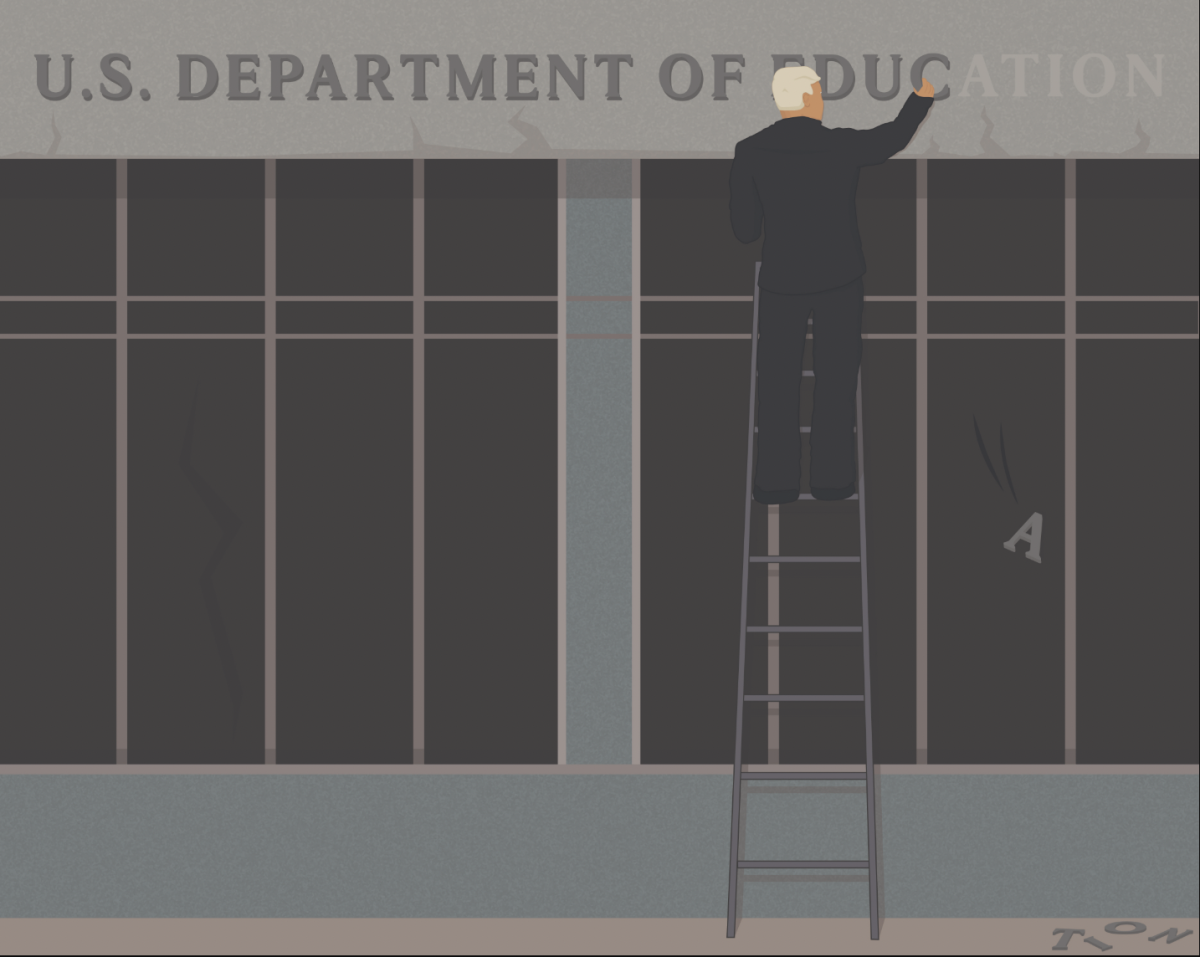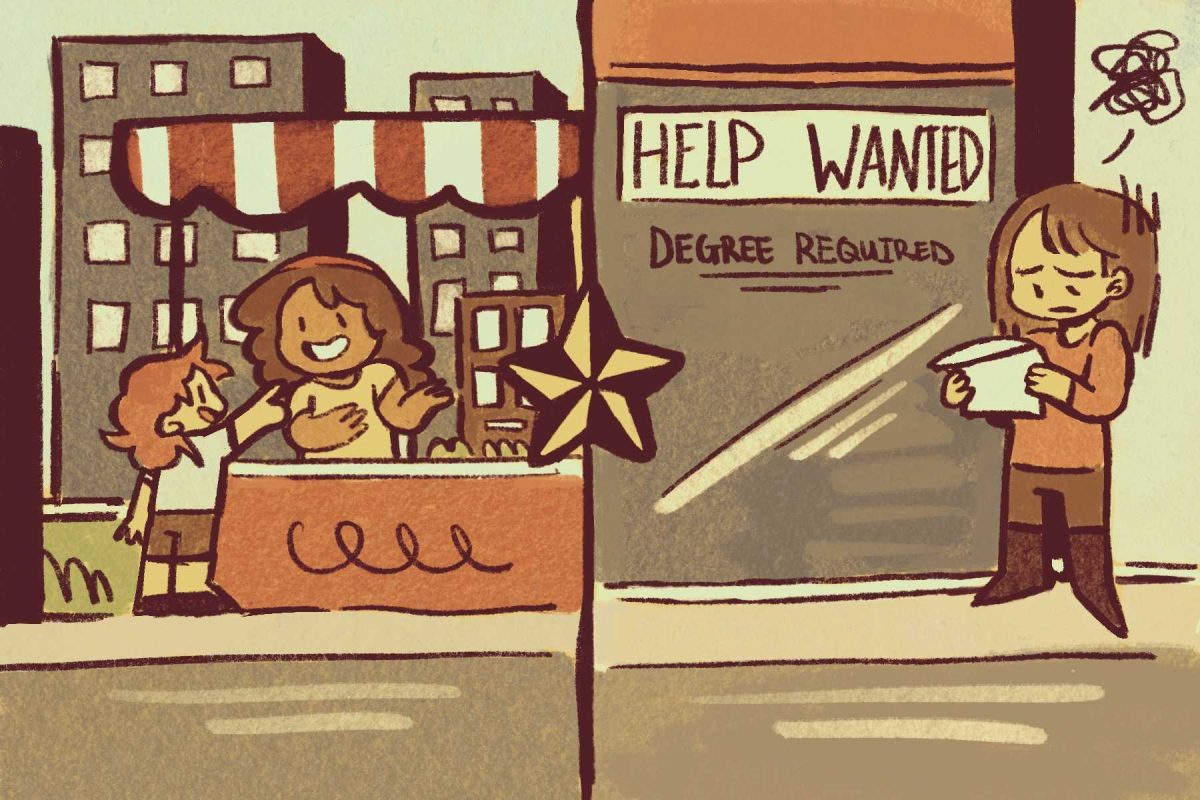An increase of ridicule and racist remarks against Asians and Pacific Islanders has become a trend in the U.S. since the COVID-19 outbreak. Talks of what these cultures eat and controversy around the wet market have sparked outrage from animal rights activists and those protesting against the virus.
Before criticism can be made about other cultures and their treatment of animals, Americans need to evaluate their own faulty food market habits. All animal consumption is unethical, whether it is through a market or a farm.
Wet markets consist of open-air stalls that sell produce, seafood and meat. Some wet markets sell and slaughter live animals on-site, including chickens, fish and shellfish. COVID-19 is only one of many zoonotic viruses believed to have come from animals and, more than likely, a wet market. In fact, reports indicate 75% of new or emerging diseases come from animals.
The focus has been turned primarily on Wuhan and their market but not toward America which has dozens of wet markets and thousands of factory farms littered across the country that are just as unethical.
A variety of abusive tactics are practiced on the animals that Americans love to eat: Cows, pigs and chickens. Every culture and religion eats something someone else might find taboo; cattle are sacred in some religions and not allowed to be slaughtered, pork is forbidden for Muslims and chickens used to be sacred to the ancient Romans.
It is clear the never-ending need for something different to eat can cause more harm than good.
Thousands of factory farms and poultry processing plants across the nation put these animals in inhumane conditions; however, ag-gag laws prevent any whistleblowers from exposing animal cruelty or unsanitary conditions on the inside.
In 2015, the Animal Legal Defense Fund (ALDF) released gruesome undercover video footage from inside a Tyson Foods Inc. slaughter plant in Carthage, Texas. The footage exposed safety violations and unsanitary work conditions for which the poultry was processed. Violations included not having the proper training or sanitary gear.
Concentrated animal feeding operations, or CAFOs, are another source of unsanitary conditions that can lead to infectious diseases. Various CAFOs are located throughout the Midwest and South that contain thousands of animals—cows, pigs and chickens—crammed together, forcing them to sit in their own waste.
Additionally, because many animals are in such close proximity to each other, the amount of waste can cause a hazardous amount of pollution to surrounding land. The pollution from animal waste causes respiratory problems, skin infections, nausea, depression and even death for people who live near factory farms.
Moore County, a county with one of the highest COVID-19 infection rates in Texas, is polluted by the smell of meat coming from the JBS Meatpacking Plant. Panhandle communities in Texas are seeing an increase in cases due to nearby meatpacking plants not having strict rules on social distancing and sanitary needs.
Scientists have advised closing these live animal markets due to not only their disturbing nature but the risk of disease and infection that can come with these markets. No matter where these markets are located they can carry disease due to lack of regulation.
Zoonotic diseases will never stop developing if factory farming processes and live animal markets continue to operate. The harm we put on nature will only continue to harm us.
-Delilah Alvarado is a journalism senior
Opinion: All animal consumption is unethical
June 8, 2020
0
Donate to The University Star
Your donation will support the student journalists of Texas State University. Your contribution will allow us to purchase equipment and cover our annual website hosting costs.
More to Discover















